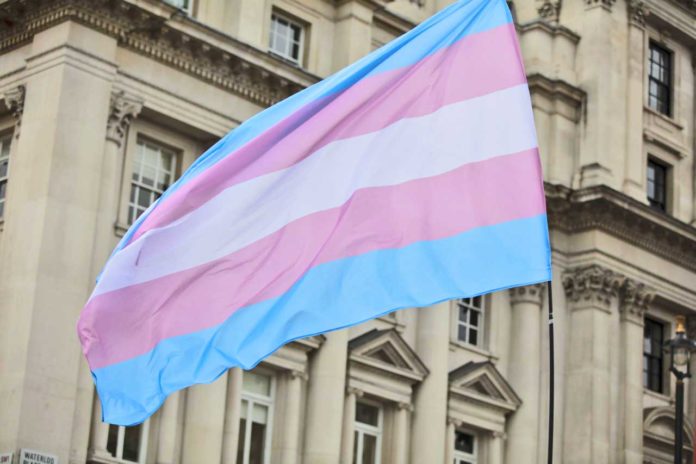The Philadelphia Sheriff’s Office this week said it’s reviewing a controversial internal directive that suggests the word “it” is acceptable as a pronoun for “gender-neutral” individuals. PGN questioned the Office about the directive, after seeing it posted on the state Office of Open Records’ website, due to a citizen’s open-records request.
The Sheriff’s Office performs a wide variety of services, including transporting Philadelphia inmates to their court appearances, arresting fugitives and conducting sheriff’s sales for foreclosed properties. It has about 400 employees.
On April 10, 2020, “Directive 58” was issued to the Office’s employees. The subject of the directive is entitled “Code of Conduct.” The directive specifies the expected code of conduct for employees in order to avoid disciplinary action.
In one section, the directive addresses the manner in which individuals are to be referred to, including what pronouns to use. Regarding pronouns for non-cisgender individuals, the directive specifies two categories: “non-binary” individuals and “gender-neutral” individuals. The directive doesn’t contain a specific category for transgender individuals.
Regarding “gender-neutral” individuals, the directive suggests three pronouns for them, including “it.” However, no major trans-advocacy organization suggests the word “it” as a pronoun for any non-cisgender individual, including “gender-neutral” individuals.
Additionally, the directive doesn’t provide a definition for “gender-neutral” individuals.
Moreover, the directive doesn’t have a category for intersex individuals, although the Office might be including such individuals in the “gender-neutral” category, which isn’t defined in the directive.
Typically, employee manuals containing LGBTQIA+ sensitivity training have categories including “Transgender,” “Non-Binary” and “Intersex.”
Ironically, the policy also states: “No deputy shall ridicule, mock, deride, taunt, or belittle any person. Neither shall the deputy knowingly embarrass, humiliate, or shame any person nor do anything that might incite such person to violence.”
On Aug. 21, Teresa M. Lundy, a spokesperson for the Office, issued this statement: “Thank you for bringing this to our attention! For context purposes, Sheriff [Rochelle] Bilal was elected to this Office in January 2020, and thus, when these policies were in place it was during a time when we were in an administrative transition phase. In addition, we had to prepare this administration for the unforeseen March 2020 COVID-19 pandemic and handle those circumstances promptly. As a result, we are now in a place to review, update and revise our policies thoroughly to ensure all communications from the Philadelphia Sheriff’s Office are LGBTQIA+ appropriate and up to City standards. Once we are completed, I’d be happy to share the updates with [PGN].”
Additional information wasn’t available, as of presstime.
Rodrigo Heng-Lehtinen, executive director of the National Center for Transgender Equality, issued this statement regarding Directive 58: “It’s normal to not know what pronoun to use to address someone, because you can’t always know their gender based on their appearance. When in doubt, it is most appropriate to use the pronoun ‘they’ to address someone when you don’t know or don’t need to specify their gender. However, the best thing to do in any situation is to ask what pronouns the person wants to be addressed by, and then use those pronouns.”
Naiymah Sanchez, senior organizer at the ACLU of Pennsylvania, echoed those sentiments.
“I’m especially concerned this directive wasn’t reviewed by the city’s Office of LGBT Affairs or the Philadelphia Mayor’s Office to give approval,” Sanchez told PGN. “The Sheriff’s Office could have sent an email to me or Celena Morrison to consult with. I want to know where they received this information from [regarding the contents of Directive 58]. It’s not best practices to refer to a gender-neutral person as ‘it.’ If you don’t know their pronouns, just ask for their name. You can never go wrong with using the name they give you.”
Kevin M. Levy, president of the Philadelphia LGBTQ Bar Association, was glad to know the Sheriff’s Office is reviewing its policies.
“It’s good to see the Sheriff’s Office is reviewing their policies to ensure they’re LGBTQ-sensitive,” Levy told PGN. “Personally, I was shocked to see the ‘it’ word suggested as a pronoun. To my knowledge, no LGBTQ+ advocacy organization suggests ‘it’ as a pronoun for any non-cisgender individual. So my hope is that the Sheriff’s Office connects more fully with the LGBTQ+ community before issuing revised policies. This is an important issue facing LGBTQ+ Philadelphians, and it’s vital to see the Sheriff’s Office address this promptly.”

